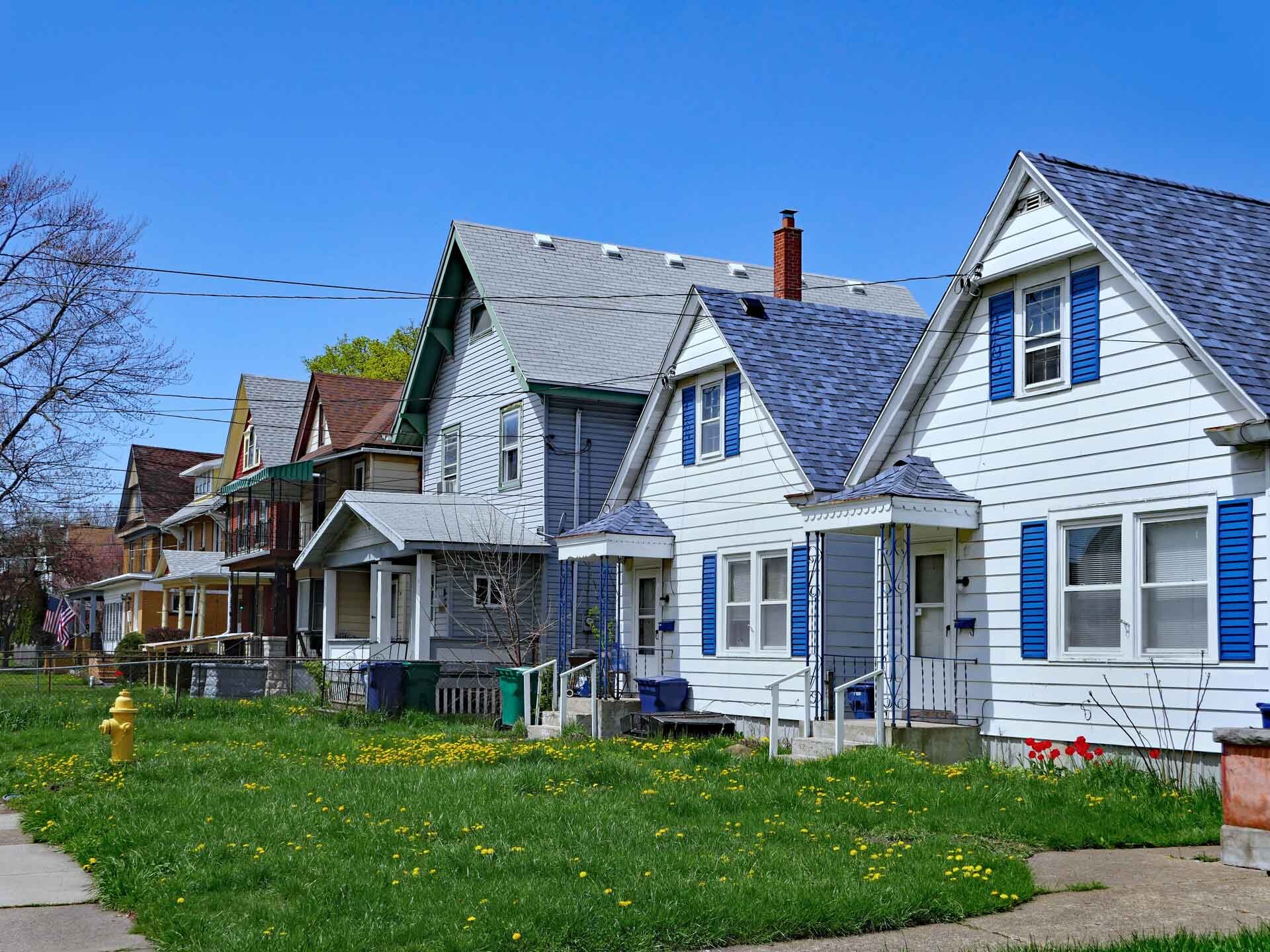Foreclosure occurs when a homeowner is unable to make their mortgage payments on time and has no way to catch up on the missed payments. Because a mortgage is a legal agreement between you and your lender, once you’ve defaulted on the loan, the lender can auction off the property to cover any outstanding debts, leaving you homeless and with terrible credit.
No one wants to receive a notice of foreclosure and yet, in a nationwide study, nearly 1 million Americans were afraid of losing their homes (U.S. Census Bureau Household Pulse Survey, fielded from July 27 to Aug. 8, 2022). Foreclosure can occur from a number of reasons, including:
- Job loss and loss of income
- Divorce or death of a spouse or partner
- Mounting debt, including medical and credit cards
- Moving without being able to sell the home
- Natural disaster
Wright Home Offer is a local company operating in OH that has built their business by buying distressed houses and properties in the area for cash. They promise competitive cash offers without the hassle of dealing with real estate agents, title companies, traditional bank financing, and more!
What is Foreclosure?
Let’s say you or your spouse recently lost your job. Suddenly, you’re faced with the same bills and responsibilities, but without the income to cover your expenses, including your mortgage payment. It’s a situation that many homeowners in Dayton can relate to, and it can be incredibly stressful. You may even find yourself in a constant cycle of juggling bills and hoping for the best. Unfortunately, despite your best efforts, if the financial gap continues to grow, your options may start to shrink.
Even if you manage to find a new job, the period of unemployment might have caused you to fall behind on payments. The debt you’ve accumulated during that time—credit card bills, medical expenses, and missed mortgage payments—might now be too large to pay off in a reasonable amount of time. This can feel overwhelming, especially when the weight of late fees, interest, and penalties continues to mount.
When this happens, your lender may start the process of foreclosure. Initially, the lender will send you a notice of default, alerting you to the fact that you’ve fallen behind on your mortgage payments. This is the first official step in the foreclosure process and typically gives you about 90 days to resolve the situation by catching up on payments, negotiating a payment plan, or seeking other solutions with your lender. If you’re unable to come up with the funds or work out a resolution, the lender will begin legal proceedings to take possession of the property.
For many homeowners, this is a stressful and emotional time. Not only are they dealing with the financial burden of their debt, but they are also facing the reality of potentially losing their home. The thought of foreclosure can seem like the end of the road, but it doesn’t have to be. There are options available, such as loan modifications, repayment plans, or even selling the home to avoid further damage to your credit.
While the bank begins foreclosure proceedings, it’s important to remember that there are steps you can take to regain control of your situation, even if your finances seem insurmountable. The key is to act quickly and explore solutions that can help you avoid foreclosure. Whether that means negotiating with your lender, considering a short sale, or seeking professional advice from a real estate expert, the earlier you start exploring your options, the better chance you have at minimizing the financial and emotional fallout.
How Long Do You Have To Get Out of Your House After Foreclosure?
The foreclosure process, while generally following a similar pattern in most states, can vary significantly depending on where you live. The typical steps include missed payments, public notice, foreclosure, auction, and eviction, but the timeframes for each step can differ from state to state. In some cases, you might have as little as 120 days to resolve the issue, while in other states, it could take up to nine months before the bank is legally allowed to take your property through foreclosure.
This variation is influenced by whether your state follows a judicial or non-judicial foreclosure process. A judicial foreclosure requires court involvement, meaning the lender must file a lawsuit and go through a legal process to obtain a court order allowing them to foreclose. This generally results in a longer timeline for the homeowner to resolve the situation. On the other hand, a non-judicial foreclosure doesn’t require court approval, and the lender can proceed with the foreclosure process more quickly, which could lead to a faster timeline.
During this time, the lender is typically very proactive in reaching out to the homeowner. Expect multiple communications via phone, mail, and email, all designed to inform you of the foreclosure process and potential options to avoid it. These communications may start with reminders of missed payments and gradually escalate to notices of default and foreclosure. In some cases, the lender may offer alternatives like loan modifications, forbearance agreements, or repayment plans to help you get back on track.
While the process can feel overwhelming, it’s important to know that you’re not alone. Your lender is required to inform you of the steps being taken and provide you with opportunities to work out a solution. The goal is to avoid foreclosure if possible, and this window of time can give you an opportunity to negotiate with the bank or seek help from professionals who can assist in finding a resolution, such as a short sale, deed in lieu of foreclosure, or even filing for bankruptcy.
Remember, the timeline is not fixed—there are many ways to potentially delay or avoid the foreclosure process altogether, depending on the actions you take. Early intervention and staying in communication with your lender are key in maximizing the time available to you before the final steps of auction and eviction.
The Different Types of Foreclosure
There are two different types of foreclosure you may experience: nonjudicial foreclosure or judicial foreclosure.
What Is Non-Judicial Foreclosure?
A non-judicial foreclosure is the fastest and cheapest way for a lender to foreclose on your OH property. It does not require taking you, the homeowner, to court and can be completed according to state statutes. In the case of non-judicial foreclosure, your lender repossesses your home to sell it and recover whatever debt is owed using what’s called a “power-of-sale” clause in the deed of trust. Not every state allows for this option but, if yours does, the lender will generally choose it to avoid any court costs.
What Is Judicial Foreclosure?
In states that require judicial foreclosure, your lender must file a lawsuit asking the court to issue an order to allow for the sale of the home. The lender must provide you with this letter. Whether you agree or not, you must respond to the letter or the lender will automatically win the case and be allowed to put your home up for a foreclosure sale. When the house is sold, you are still required to pay the difference between what you still owe on the mortgage and the amount the house sold for.
Auctions are not like regular home sales and generally the house is not sold for market value. This means that even if your house is in great shape and worth a lot more than what is left on your mortgage, you may still find yourself owing tens of thousands (if not hundreds of thousands) of dollars for a house you no longer own! This is called a deficiency judgment. It’s an expensive and long process for lenders to take to try and recoup their debt, which is why most prefer a non-judicial foreclosure.
Get an offer today, sell in a matter of days.
How to Sell Your House Before Foreclosure in OH
Let’s break down a few ways you can sell your house, depending on your time frame and situation:

Hire A Real Estate Agent
The first step most Americans think of when selling a house or property is to reach out to a local real estate agent. But there are pros and cons to this option when you are in a difficult situation such as foreclosure. Sure, a good real estate agent can list your property on the MLS and help you get it ready for open houses and daily showings, but they do all of this work so that at the end of the closing process a large chunk of your money from the sale of your house goes to them in the form of the agent’s commission. When you’re already suffering from a mountain of debt and need every penny to pay back your lender, a commission of 3% to 6% of your final sale price may be too hefty an amount to give up.
Plus, there’s the additional fear of not knowing when your house will actually close. Realtors may promise a lot, but at the end of the day you’ll still need to find the right buyer and wait 30+ days for a traditional close. For some homeowners who are facing auction and eviction, even waiting one month might be too long.

Short Sale
If you owe more on your house than it’s worth, your realtor may require what is called a short sale. A short sale is necessary when you owe more on your house than the property is currently worth. For example: if you owe $200,000 on your house but in the current market it’s only worth $150,000, you must deal with a short sale. Though it may seem like a good option, it won’t be fast or easy.
To start off, you’ll first need to get your lender’s approval. To qualify for a short sale, you must prove financial hardship using documentation such as W-2s, medical bills, etc. For a situation such as loss of income, the lender will require that you prove that the loss of income is long-term and unlikely to turn around in your favor. If the lender approves the short sale, you will need to find a real estate agent and attorney that specialize in short sales, and they will still charge you the same amount as they would if you were selling your house with a traditional home sale.
If your foreclosure hasn’t dragged on for too long and you’ve maintained contact with your lender, it’s likely that they will approve the short sale. This allows them to avoid the time and expense of trying to foreclose on your property, while still recouping some of the loss from the missed mortgage payments. But for the regular American homeowner, the short sale will follow them for the next 5 to 7 years.
You may have sold the house and been able to pay off some of your debt, but the short sale can damage your credit the same as if you had declared bankruptcy. The credit unions include the delinquency on your mortgage(s) to your lenders and the short sale on their records, making it nearly impossible for previous homeowners to get a credit card, buy a car, or move into a new house or property for the same amount of time as a bankruptcy.

Sell Your House AS-IS to A Cash Buyer
If you’re under a strict time restraint to sell your house before a foreclosure progresses to auction and eviction, you do have options! You can try to sell your property with a real estate agent, work with your lender to complete a short sale, or – best of all – turn to a trusted and reliable cash investor to help you with your situation.
Some of the benefits of selling to a direct cash investor include:
- A quick and pain-free closing process.
- Avoid paying any commissions or fees.
- You won’t have to worry about marketing your house and waiting for a buyer.
- No need to clean-up or complete any repairs!
When you sell your home as-is to a direct cash buyer, you not only can avoid losing your home to an auction, but you also may be able to sell the property for enough money to get out of financial debt. Moving on with your life without the burden of a monthly mortgage payment and debt hanging over your head is one of the best gifts you can give yourself!
Can You Stop Foreclosure Once it Starts?
Pay Off Your Loan & Fees
You’ve found yourself in a difficult situation. Your debt is adding up while your finances remain the same. It’s time to get serious and look at ways to pay down your debt quickly. Do you have any items you can liquidate? Maybe you have friends or family that can gift you money or provide you with a loan until you get back on track. If you are serious about paying down your debt and stopping foreclosure, you may need a financial professional to help you restructure your budget. Use one of these solutions or combine them all to help climb that avalanche of debt and get back to living a life free of stress.
Declare Bankruptcy
As a last resort, bankruptcy may help you stop the foreclosure of your home but it comes with a high cost. The bankruptcy process is complex and will require a lawyer that specializes in bankruptcy law. If the court approves your petition, you will be entered into a government-approved credit counseling program and the bankruptcy will be reported on your credit report for 7 years. A bankruptcy affects all areas of your life, including when you try to purchase a car, apply for a credit card or bank account, and can disqualify you from future rentals.
The Homeowner Affordability and Stability Plan (HASP)
If your debt is higher than your income, you may be eligible for the Homeowner Affordability & Stability Plan (HASP). HASP is a loan modification program targeted at borrowers who are at risk of foreclosure due to insufficient income. This government program was designed to help homeowners in the United States restructure their monthly payments to fit a limited budget. Apply for the program here to see if you qualify.
Related Articles
5 Ways the Foreclosure of Your Dayton House Will Impact You in the Future
What Homeowners in Dayton Can Expect During the Foreclosure Process
The Difference Between Pre-Foreclosure and Foreclosure for Homeowners in Dayton
How to Sell Your House During Bankruptcy in Dayton
Stopping the Foreclosure Process: A Guide for Dayton Homeowners
What Rising Foreclosure Rates Mean for Home Buyers and Sellers in Dayton
Avoiding Foreclosure: How Dayton Direct Property Buyers Can Help You Keep Your Credit Score Intact
How to Sell Your House in Dayton if You Owe More Than It’s Worth
4 Things to do if You Are Upside-Down on Your Mortgage in Dayton
Traditional Sales vs. Short Sales And Foreclosures in Dayton
Sell Your House Fast to a Cash Buyer
Are you ready to sell your house but don’t have the luxury of waiting 30+ days for a traditional closing? Are you worried that a short sale could hurt your credit and leave you stuck in a prolonged process? Or maybe you’re looking to settle all your debts quickly and get the bank off your back once and for all? If any of these scenarios sound familiar, a direct home buyer or cash investor could be exactly the solution you’ve been searching for!
When you choose to work with a trusted and reliable real estate investor with a strong reputation in your area, you gain access to a company that’s ready to purchase your home as-is, with cash in hand. This process bypasses the traditional routes like foreclosure, lengthy inspections, and the complicated negotiations of a short sale. A cash buyer offers a fast, hassle-free transaction, meaning you can close within days—not weeks or months—helping you avoid the stress of auction, eviction, or the endless waiting that often accompanies traditional sales.
While it’s true that you may not receive full market value when selling to a trusted investor, the benefits of a speedy sale, no repairs, no inspections, and no hidden fees can make up for it in many ways. With no commissions or closing costs, you’ll walk away with more money in your pocket than if you were to go the traditional route. And most importantly, because the investor can close quickly, you have the advantage of selling your property before the bank can auction it off at a fraction of its value.
The bank’s goal during foreclosure is simply to recoup their losses, often selling the property for pennies on the dollar just to get it off their books. This means you’ll likely receive much less than what your home is worth, and your credit could take a major hit. However, by selling to a cash investor, you’re in control of the sale, and you can choose a closing date that fits your timeline—often before the bank even gets the chance to auction your home.
By selling your house directly to an investor, you can save your credit from foreclosure’s negative impact, eliminate the financial burdens weighing you down, and get a fresh start. It’s a straightforward solution that offers peace of mind during a time that can feel overwhelming.
We Buy Houses in Foreclosure & Pre-foreclosure–
Get Your Offer Today!
Does the idea of finally walking away from a property without the storm cloud of foreclosure hanging over your head? Contact a real professional at Wright Home Offer to find out more and get a fair cash offer for your property today.

